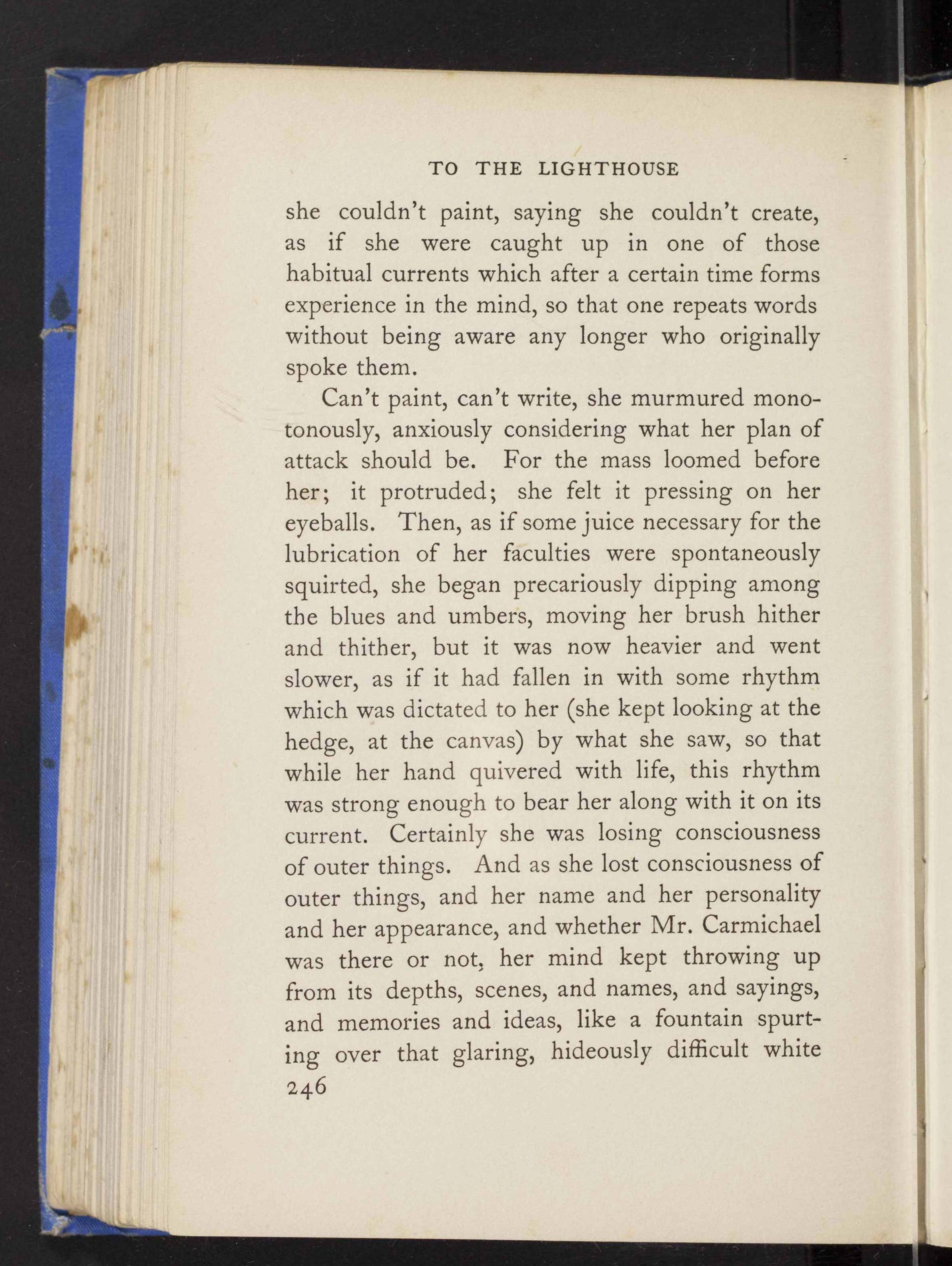
TO THE LIGHTHOUSEshe couldn’t paint, saying she couldn’t create,as if she were caught up in one of thosehabitual currents which after a certain time formsexperience in the mind, so that one repeats wordswithout being aware any longer who originallyspoke them.Can’t paint, can’t write, she murmured mono-tonously, anxiously considering what her plan ofattack should be. For the mass loomed beforeher; it protruded; she felt it pressing on hereyeballs. Then, as if some juice necessary for thelubrication of her faculties were spontaneouslysquirted, she began precariously dipping amongthe blues and umbers, moving her brush hitherand thither, but it was now heavier and wentslower, as if it had fallen in with some rhythmwhich was dictated to her (she kept looking at thehedge, at the canvas) by what she saw, so thatwhile her hand quivered with life, this rhythmwas strong enough to bear her along with it on itscurrent. Certainly she was losing consciousnessof outer things. And as she lost consciousness ofouter things, and her name and her personalityand her appearance, and whether Mr. Carmichaelwas there or not, her mind kept throwing upfrom its depths, scenes, and names, and sayings,and memories and ideas, like a fountain spurt-ing over that glaring, hideously difficult white246









